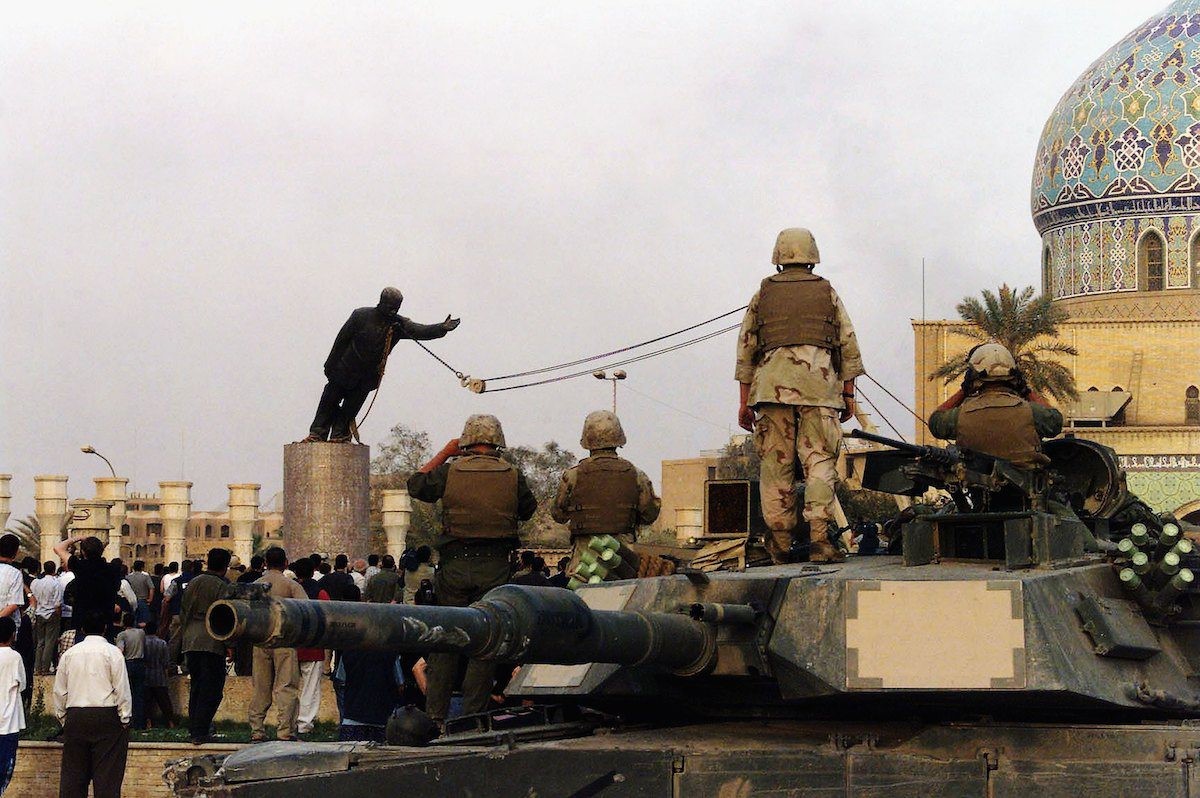
Spanning from 1980 to 1988, the Iran-Iraq War remains one of the 20th century's most pivotal conflicts, reshaping the geopolitical landscape of the Middle East. This war was marked by its prolonged duration, high casualty rates, and the use of chemical weapons, making it a particularly brutal chapter in the region's history. For those curious about this significant event, understanding its complexities can seem overwhelming. However, breaking down the conflict into 30 key facts offers a more accessible entry point. From the causes that sparked hostilities to the lasting impacts on both nations, these insights provide a comprehensive overview. Whether you're a student, history enthusiast, or simply looking to broaden your knowledge, these facts will equip you with a deeper understanding of the Iran-Iraq War's significance.
The Iran-Iraq War, lasting from 1980 to 1988, stands as one of the 20th century's most significant conflicts. It reshaped the geopolitical landscape of the Middle East and had far-reaching impacts on international relations, economics, and the lives of millions. Here, we delve into key facts about this war, shedding light on its causes, consequences, and the enduring legacy it has left behind.
Origins and Causes of the Conflict
The roots of the Iran-Iraq War can be traced back to a complex web of territorial disputes, religious tensions, and political ambitions. Saddam Hussein's Iraq sought to assert dominance in the Persian Gulf region, while revolutionary Iran aimed to export its Islamic revolution.
-
Territorial Disputes: The war was ignited by longstanding territorial disputes, particularly over the Shatt al-Arab waterway, a vital channel for oil exports.
-
Religious Tensions: Sunni-majority Iraq and Shia-majority Iran had deep-seated religious differences, exacerbating the conflict.
-
Political Ambitions: Saddam Hussein aimed to position Iraq as the dominant power in the Arab world, challenging Iran's influence.
Major Battles and Strategies
Throughout the eight-year conflict, both nations employed various military strategies and engaged in several pivotal battles that defined the course of the war.
-
Operation Badr: In 1985, Iran launched a large-scale offensive named after the Islamic prophet Muhammad's first military victory, aiming to break Iraqi defenses.
-
The Tanker War: To cripple each other's economies, both sides attacked oil tankers and merchant ships in the Persian Gulf, extending the war beyond their borders.
-
Chemical Warfare: Iraq used chemical weapons extensively against Iranian forces and Kurdish civilians, marking one of the conflict's most horrific aspects.
International Involvement and Impact
The Iran-Iraq War drew in numerous global powers, each backing different sides for strategic and economic reasons, significantly influencing the war's dynamics and outcome.
-
U.S. Involvement: The United States, fearing the spread of Iran's Islamic Revolution, supported Iraq by providing intelligence, military equipment, and financial aid.
-
Soviet Support: The Soviet Union, aiming to maintain influence in the region, supplied both countries with arms, playing a complex role in the conflict.
-
Economic Toll: The war severely damaged both countries' economies, costing an estimated $600 billion in damages and lost oil revenue.
Human Cost and War Crimes
The human toll of the Iran-Iraq War was staggering, with casualties on both sides reaching into the hundreds of thousands, including many civilians.
-
Casualties: Estimates suggest that the war resulted in over 500,000 deaths and even more injured, making it one of the deadliest conflicts of the 20th century.
-
Kurdish Genocide: Known as the Anfal campaign, Saddam Hussein's forces committed genocide against the Kurdish people in northern Iraq, killing tens of thousands.
-
Prisoners of War: Tens of thousands of soldiers were taken as prisoners of war, many of whom suffered torture and years of detention without trial.
Legacy and Aftermath
The Iran-Iraq War's legacy is complex, influencing Middle Eastern politics, international relations, and military strategies for decades to come.
-
Unresolved Issues: The war ended without a clear victor, leaving many of its underlying causes unresolved and setting the stage for future conflicts.
-
Economic Reconstruction: Both nations faced the daunting task of rebuilding their economies and infrastructure, a process that took years and was hindered by ongoing sanctions and debt.
-
Chemical Weapons Precedent: Iraq's use of chemical weapons set a dangerous precedent, raising concerns about the proliferation and use of weapons of mass destruction in future conflicts.
-
Veterans and Society: Veterans of the war, many of whom were teenagers when they fought, returned home to societies struggling to integrate them and deal with the psychological and physical scars of the conflict.
-
International Law: The war prompted discussions and revisions in international law, particularly regarding the use of chemical weapons and the treatment of prisoners of war.
-
Regional Power Dynamics: The conflict altered the balance of power in the Middle East, weakening both Iran and Iraq and affecting their relationships with neighboring countries and global powers.
-
Influence on Future Conflicts: The strategies and tactics used during the Iran-Iraq War, including asymmetric warfare and the targeting of oil infrastructure, have influenced military thinking and conflict in the region ever since.
-
Memorials and Remembrance: In both Iran and Iraq, memorials and annual commemorations serve as reminders of the war, honoring the fallen and reflecting on the conflict's lasting impact on national identity and collective memory.
-
Environmental Impact: The war caused significant environmental damage, including oil spills, fires, and land mines, some of which continue to affect the region's ecology and human health.
-
Displacement and Refugees: Millions were displaced during the war, leading to significant refugee crises that impacted neighboring countries and the broader region.
-
Cultural Expression: The war has been depicted in films, literature, and art, serving as a source of inspiration and a means of processing the traumatic experiences of combatants and civilians alike.
-
International Relations: The war reshaped alliances and enmities in the Middle East, influencing diplomatic relations and international policy towards Iran and Iraq for years to come.
-
Economic Sanctions: In the aftermath, both nations faced economic sanctions that further hindered their recovery and development, impacting the lives of ordinary citizens.
-
Technological Advancements: The conflict spurred advancements in military technology and tactics, including the use of drones and electronic warfare, that have been adopted in subsequent conflicts.
-
Psychological Impact: The war left a deep psychological imprint on generations, affecting national psyche and individual mental health, with many suffering from PTSD.
-
Demographic Changes: The loss of life and displacement led to significant demographic changes within both countries, affecting population structures for decades.
-
Reconciliation Efforts: In the years following the war, there have been efforts at reconciliation between Iran and Iraq, including diplomatic initiatives and bilateral agreements aimed at healing the wounds of the past.
-
Historical Documentation: Efforts to document and analyze the Iran-Iraq War have been crucial in understanding its causes, consequences, and lessons, contributing to the historical record and informing future generations.
Reflecting on History's Echo
We've journeyed through the tumultuous period of the Iran-Iraq War, uncovering facts that paint a vivid picture of conflict, resilience, and the quest for power. This war, marked by its brutal tactics and profound human cost, serves as a stark reminder of the complexities of international relations and the enduring impact of military conflicts on nations and individuals alike. As we look back, let's remember the lessons learned and the importance of striving for peace and understanding in a world too often divided by borders and beliefs. History's echo serves not just as a reminder of what was, but as a guide for what should never be again. Let's carry forward the stories of those affected, ensuring their experiences inform our path towards a more harmonious global community.
Was this page helpful?
Our commitment to delivering trustworthy and engaging content is at the heart of what we do. Each fact on our site is contributed by real users like you, bringing a wealth of diverse insights and information. To ensure the highest standards of accuracy and reliability, our dedicated editors meticulously review each submission. This process guarantees that the facts we share are not only fascinating but also credible. Trust in our commitment to quality and authenticity as you explore and learn with us.


